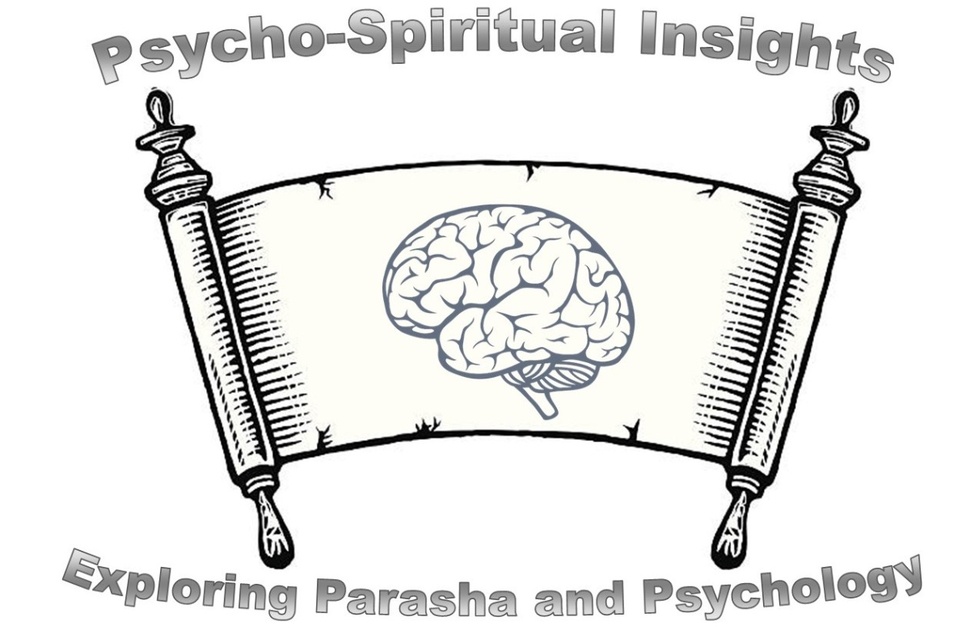
Parshat Naso contains one of the most fascinating and enigmatic rituals in all of the torah, the story of the Sotah, suspected adulterer. At first glance this story seems harsh and archaic but deeper exploration reveals profound insights into relationships, trust, and insecurity. It provides us an opportunity to explore the psychological concepts of relational insecurity and jealousy.
The Sotah ritual is initiated when a husband suspects his wife of infidelity but lacks concrete evidence. He brings her to the Kohen, and she undergoes a ceremonial process of dissolving Hashem’s name in a substance that will be drank for the truth to be revealed. The Ramban notes the unique procedure by stating “nowhere in the laws of the Torah is there something that depends on a miracle except for this matter, which is a fixed wonder and miracle that is performed for Bnei Yisrael." Many commentators tackle the question of this miraculous process requiring the erasure of Hashem’s name providing us insight into the psychology of relationships.
Relationship insecurity is a common issue that can arise in any partnership. It manifests as doubt about a partner’s loyalty, love, or commitment. These insecurities can stem from various sources: past experiences, personal insecurities, or even misunderstandings within the relationship. Left unaddressed, these feelings can fester, leading to mistrust, resentment, and ultimately, the breakdown of the relationship. Jealousy lives upon doubt.
Rav Yaakov Kamenetsky writes in Iyunim Bamikra, once a person becomes suspicious of their spouse they might not even trust a court as a legal decision rarely changes peoples emotions. Only Hashem providing testimony of faithfulness would be enough to convince someone. Stephen Covey writes that "Trust is the glue of life. It's the most essential ingredient in effective communication. It's the foundational principle that holds all relationships."
Through the process of testing the relationship, Hashem also provides a lesson regarding self-abnegation and its quality in healthy relationships. Self-abnegation is the willingness to put one's own needs, desires, or interests aside to benefit others or for a greater cause. The Gemarah in Chullin 141a tells us “Great is the value of peace between husband and wife, for the Torah says: the Name of the Holy One, written in holiness, is blotted out in the water." For the purposes of creating shalom bayit, peace in a couple, if Hashem is willing to have his name erased, how much more so should we take steps to humble and bend ourselves for our relationships.
The Sotah ritual can be viewed as an ancient form of addressing relationship insecurities. The Gemarah in Sotah 47a tells us that the practice was discontinued during the second Bet HaMikdash when the nation lost their worthiness. While the Sotah ritual is not practiced, its principles can still be applied to provide valuable lessons for contemporary relationships:
- Acknowledgment of the Issue: The husband’s suspicion is not dismissed or ignored. Instead, it is brought into the open and addressed formally. This underscores the importance of acknowledging insecurities rather than allowing them to simmer beneath the surface.
- Structured Process: The ritual involves a clear, structured process that both partners must follow. This mirrors the structured environment of couples counseling, where guided sessions help couples navigate their issues methodically.
- Taping into the Divine: The ritual involves invoking Hashem’s presence, highlights the spiritual dimension of marriage. Increasing out communication and noticing our emotional activation allows us to act like Hashem would.
Every miracle is an outright violation of the Hashem’s policy to remain hidden behind natural phenomena and stay out of our way in this world, however that is overridden for the sake of harmony in relationships. Parshat Naso’s Sotah ritual, while ancient, offers timeless wisdom about the importance of addressing relationship insecurities head-on. By following in the ways of Hashem, may we all find satisfaction in our relationships and shalom bayit in our homes.
Elan Javanfard, M.A., L.M.F.T. is a Consulting Psychotherapist focused on behavioral health redesign, a Professor of Psychology at Pepperdine University, & a lecturer related to Mindfulness, Evidence Based Practices, and Suicide Prevention. Elan is the author of Psycho-Spiritual Insights: Exploring Parasha & Psychology, weekly blog. He lives in Los Angeles Pico Robertson community with his wife and three children and can be reached at Elan.Javanfard@gmail.com.
 Previous
Previous
